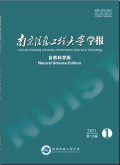南京信息工程大学学报2024,Vol.16Issue(1):83-96,14.DOI:10.13878/j.cnki.jnuist.20230216003
基于多代理模仿学习的普适边缘计算资源分配
Resource allocation for pervasive edge computing based on multi-agent imitation learning
摘要
Abstract
Pervasive edge computing allows peer devices to establish independent communication connections,which enables users to process massive computing tasks with low delay.However,distributed devices cannot obtain the global system status of the network in real time,thus the fairness of resource utilization cannot be guaranteed.To solve this problem,a resource allocation scheme for pervasive edge computing based on Generative Adversarial Net-work(GAN)is proposed.In this scheme,a multi-objective optimization problem is established for minimizing the time delay and energy consumption,which is then transformed into a maximum reward problem according to the ran-dom game theory.And then a computation offloading algorithm based on multi-agent imitation learning is proposed,which combines multi-agent Generative Adversarial Imitation Learning(GAIL)and Markov Decision Process(MDP)to approximate the performance of experts,and realizes online execution of the algorithm.Finally,combined with Non-dominated Sorting Genetic Algorithm Ⅱ(NSGA-Ⅱ),the time delay and energy consumption are jointly optimized.Simulation results show that,compared with other edge computing resource allocation schemes,the pro-posed solution shortened the time delay by 30.8%and reduced the energy consumption by 34.3%.关键词
边缘计算/模仿学习/分布式计算/联合优化/资源分配Key words
edge computing/imitation learning/distributed computing/joint optimization/resource allocation分类
信息技术与安全科学引用本文复制引用
刘建华,李炜,刘佳嘉,涂晓光,谢家雨..基于多代理模仿学习的普适边缘计算资源分配[J].南京信息工程大学学报,2024,16(1):83-96,14.基金项目
四川省科技厅科普创作项目(2022JDKP0093) (2022JDKP0093)
四川省科技创新苗子工程重点项目(2022JDRC0076) (2022JDRC0076)
中央高校基本科研业务费专项基金(ZHMH2022-004,J2022-025) (ZHMH2022-004,J2022-025)

